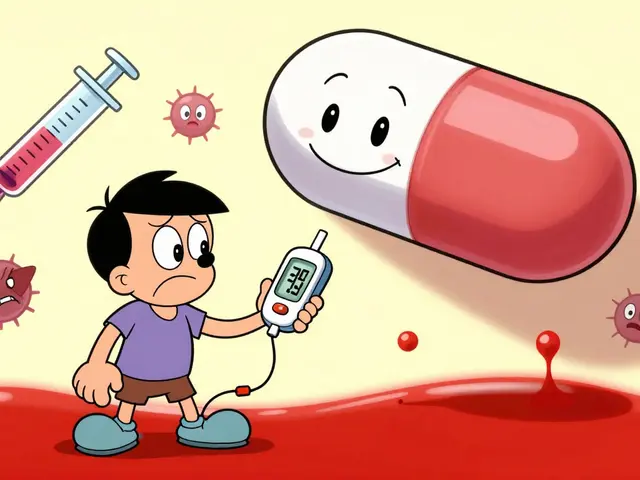Wellbutrin SR alternatives: what works and how to choose
If Wellbutrin SR (bupropion) isn’t working for you or causes side effects, there are many alternatives. Some are other medications with similar effects. Others are non-drug options or combination strategies. Below I’ll list common alternatives, when they might be a better fit, and simple tips for switching safely.
Common drug alternatives and what they help with
Bupropion comes in different forms (SR, XL, IR) so sometimes a different formulation is enough. If you need a true alternative, consider these categories:
SSRIs — examples: sertraline, fluoxetine, escitalopram. These are usually first-line for depression and anxiety. They tend to help mood and anxiety but can cause sexual side effects and take 4–6 weeks to show full benefit.
SNRIs — examples: venlafaxine, duloxetine. These help depression and nerve-related pain. Duloxetine is often chosen when pain or fibromyalgia is also present.
Mirtazapine — useful if you have trouble sleeping or need appetite gain. It can make you sleepy at first.
Trazodone — often used at low doses for sleep. At higher doses it can help depression too.
Vortioxetine and Vilazodone — newer options that can help cognition, mood, and sometimes cause fewer sexual side effects compared with SSRIs.
Ketamine or esketamine — used for treatment-resistant depression in specialized clinics. They work fast but require medical supervision.
Non-drug options and picking the right approach
Therapy matters. Cognitive behavioral therapy (CBT) and other psychotherapies are proven and can be combined with meds. For people who prefer non-medical routes, repetitive transcranial magnetic stimulation (rTMS) is an option for moderate to severe depression when meds haven’t helped.
How to choose? Match the treatment to your main symptoms. If anxiety is a big part, an SSRI or SNRI may be better. If low energy and smoking cessation matter, bupropion-like effects are helpful. If sleep and weight gain are problems, avoid meds that worsen them and consider mirtazapine or trazodone strategically.
Switching safely: never stop or switch antidepressants without talking to your prescriber. Many switches use a cross-taper, where the new drug starts while the old one is slowly reduced. Some drugs require a washout period (for example, MAOIs need a two-week gap from most antidepressants; fluoxetine needs longer). Ask about seizure risk — bupropion raises seizure risk at high doses and with certain conditions.
If cost, side effects, or specific symptoms are driving the change, write down what you want different from your current medicine and share that with your clinician. That makes finding the right Wellbutrin SR alternative faster and safer.
Want help narrowing options based on your symptoms or past meds? I can summarize choices for your situation so you can discuss them with your prescriber.





